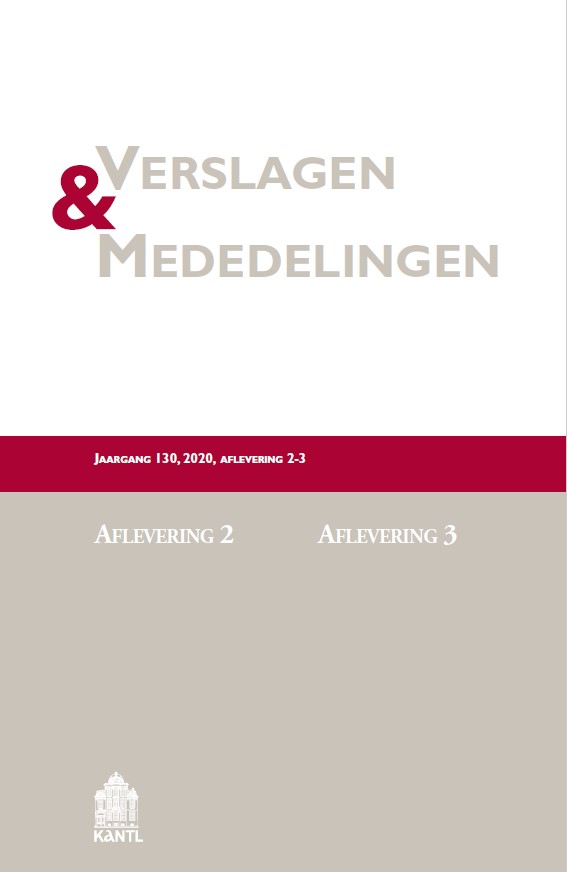Meer dan een lasterwoord?
Slavernij als topos en praktijk in het werk van Hendrik Conscience (1812-1883)
Samenvatting
Provisional:
In the substantial oeuvre of the Belgian novelist Hendrik Conscience (1812-1883) Batavia (1858) is the only text which engages more thoroughly in the topic of slavery and colonialism. For that reason, Conscience’s somewhat forgotten novel about the Dutch conquest of Java in the early 17thcentury recently attracted new scholarly interest. While this new interest in itself is more than welcome, as studies on colonial representations in 19thcentury Flemish literature still run scarce, it also seems to be driven by the urge to expose Conscience’s views as imperialistic, racist and unsensitive to the atrocities of slavery. This article argues that these moral reckonings run the risk of obscuring the complexities of literary texts and how they functioned at their time of writing. Whereas Batavia clearly does not invite the reader’s dissent with European colonialism, it contains abolitionist tendencies hitherto unnoticed. The text was influenced by slave narratives and quite possibly other abolitionist propaganda, and it even shows a deep affinity with the famous antislavery novel Uncle Tom’s Cabin which was published in 1852 in the United States and circulated widely in Belgium from early 1853 onwards. This article exposes these abolitionist tendencies by presenting a close reading of Conscience’s text and also by drawing upon wide variety of historical and book historical sources.
- Auteurs behouden de auteursrechten en geven het tijdschrift het recht van eerste publicatie van het werk onder een Creative Commons Attribution Licentie die anderen het recht geeft het werk te delen onder vermelding van het auteurschap van het werk en de eerste publicatie in dit tijdschrift.
- Auteurs mogen separate, additionele contractuele overeenkomsten aangaan voor het niet-exclusief distribueren van de door het tijdschrift gepubliceerde versie van het werk (bv. plaatsing in een institutionele repository of publicatie in een boek), onder vermelding van de eerste publicatie in dit tijdschrift.
- Auteurs hebben het recht en worden aangemoedigd om hun werk online beschikbaar te stellen (bv. in institutionele repositories of op hun website) voorafgaand aan en gedurende de inzending, aangezien dat kan leiden tot productieve discussies, sneller en meer citaties van het gepubliceerde werk (Zie The Effect of Open Access).


